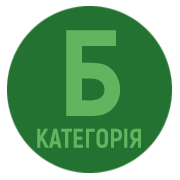PROSPECTS FOR THE DEVELOPMENT OF RURAL TOURISM IN THE FRONTLINE COMMUNITIES OF UKRAINE
DOI:
https://doi.org/10.32782/naturalspu/2024.1.14Keywords:
sociological survey, frontline communities, rural tourism, development prospects, cluster cooperation.Abstract
The article is devoted to clarifying the prospects for the development of rural tourism in the frontline communities of Ukraine in the postwar period. According to the results of the questionnaire survey of tourism business owners, employees of tourist infrastructure and attractions, members public organizations of tourism direction and officials of the executive power coordinating tourism activities in the frontline territories of Ukraine (Dnipropetrovsk, Donetsk, Zaporizhzhya, Sumy and Kharkiv), the main directions of activity and prospects for the development of rural tourism were found out. The questionnaire included 25 closed and open-ended questions with the use of Google-form tool concerning different directions of tourism business activity and its location (urban or rural areas). The questions of the questionnaire provided for finding out the level of respondents’ involvement in rural tourism before the war, revealing their opinion on the types of tourism that will be in demand in their community after the end of hostilities, and the prospects for the development of rural tourism in frontline communities after the end of the war. It was found that 52,1% of respondents believe that rural tourism as a type of tourism will not be in demand after the end of the war. Respondents from Dnipropetrovsk and Kharkiv regions consider rural tourism as unpromising (more than 50% of answers). Only respondents from Sumy region believe that rural tourism will be in demand after the war, although even in this region only a relative majority (44,8%) of respondents are optimists. From a comparative geographical perspective (urban and rural residents) 67,5% of respondents from Dnipro region, 63,6% from Zaporizhzhia region, 60% from Sumy region, 66,7% from Kharkiv region, and 46,7% from Donetsk region rural tourism is not considered promising after the end of hostilities. In the rural areas of these regions, significantly more respondents consider rural tourism to be promising (40% of respondents from Dnipropetrovska, 33,3% from Donetsk, 75% from Zaporizhzhya, 66,7% from Sumy, and 61,5% from Kharkiv regions).
References
Національний стандарт України ДСТУ 9105:2021 «Туристичні послуги. Сільський туризм. Загальні вимоги. Класифікація засобів розміщення». URL: https://nto.ua/assets/files/ntou-standard-9105-2021-ruraltourism.pdf.
Оновлена програма добровільної категоризації у сфері сільського зеленого туризму «Українська гостинна садиба» / ГО «Спілка сільського зеленого туризму України». URL: https://www.greentour.com.ua/posluga/programm_kategory.
Про внесення змін до Закону України «Про особисте селянське господарство» щодо розвитку сільського зеленого туризму : проєкт закону від 02.07.2015 р. № 2232-а URL: https://w1.c1.rada.gov.ua/pls/zweb2/webproc4_1?pf3511=55828.
Про внесення змін до Податкового кодексу України щодо оподаткування доходів, отриманих у сфері сільського зеленого туризму : проєкт закону від 14.12.2017 р. № 7400. URL: https://w1.c1.rada.gov.ua/pls/zweb2/webproc4_1?pf3511=63151.
Про сільський та сільський зелений туризм : проєкт закону від 05.03.2021 р. № 5206. URL: https://w1.c1.rada.gov.ua/pls/zweb2/webproc4_1?pf3511=71321.
Розвиток туристичного бізнесу прифронтових громад в умовах війни: зарубіжний та український досвід / М. Рейманн та ін. Регіональна економіка. 2023. № 1. С. 105–113. DOI: 10.36818/1562-0905-2023-1-12.
The potentials of rural tourism in developing rural areas in Albania / H. Nagy et al. Deturope. 2017. № 9 (3). P. 188–206. DOI: 10.32725/det.2017.029.
Skuric N. Development of tourism in Croatia as a new tourist destination compared to tourism development in select post-communist countries : Thesis. Rochester Institute of Technology, 1999. URL: https://scholarworks.rit.edu/cgi/viewcontent.cgi?article=1513&context=theses.
Hall D.R. Tourism as sustainable development? The Albanian experience of “transition”. International Journal of Tourism Research. 2000. № 2 (1). P. 31–46. DOI: 10.1002/(SICI)1522-1970(200001/02)2:13.0.CO;2-W.
Rural Tourism and Sustainability : A Special Issue / B. Lane et al. Review and Update for the Opening Years of the Twenty-First Century. Sustainability, 2022. № 14. P. 6070. DOI: 10.3390/su14106070.
Tang Lu. The Overview of the Origin and Research of Rural Tourism Development. 7’th International Conference on Management, Education and Information (MEICI 2017). Advances in Intelligent Systems Research. Vol. 156. Р. 448–452.
Lee J.-O., Thomson K.J. The Promotion of Rural Tourism in Korea and Other East Asia Countries: Policies and
Implementation. International Association of Agricultural Economists (IAAE). 2006 Annual Meeting, August 12–18. DOI: 10.22004/ag.econ.25769.
Hilman Y.A. Regional Development of Tourism in Ponorogo Regency. East Java Journal of Indonesian Tourism and Development Studies. 2016. Vol. 4 (3). P. 91–96. DOI: 10.21776/ub.jitode.2016.004.03.01.
Walford N. Patterns of development in tourist accommodation enterprises on farms in England and Wales. Applied Geography. 2001. Vol. 21 (4). P. 331–345. DOI: 10.1016/S0143-6228(01)00010-8.
Understanding and managing the rural tourism experience – The case of a historical village in Portugal / E. Kastenholz et al. Tourism management perspectives. 2012. № 4. P. 207–214.
Rural tourism recovery between two COVID-19 waves: The case of Portugal / C.P. Marques et al. Current Issues in Tourism. 2022. № 25 (6). P. 857–863.
Verbole A. Negotiating rural tourism development at the local level: A case study in Pisece, Slovenia. Wageningen, 1999. 281 р. URL: https://edepot.wur.nl/198226.
Could rural tourism revitalize rural areas in Croatia? / I. Grgić et al. Agroeconomia Croatica. 2017. № 7 (1). P. 98–108. URL: https://hrcak.srce.hr/file/280899.







